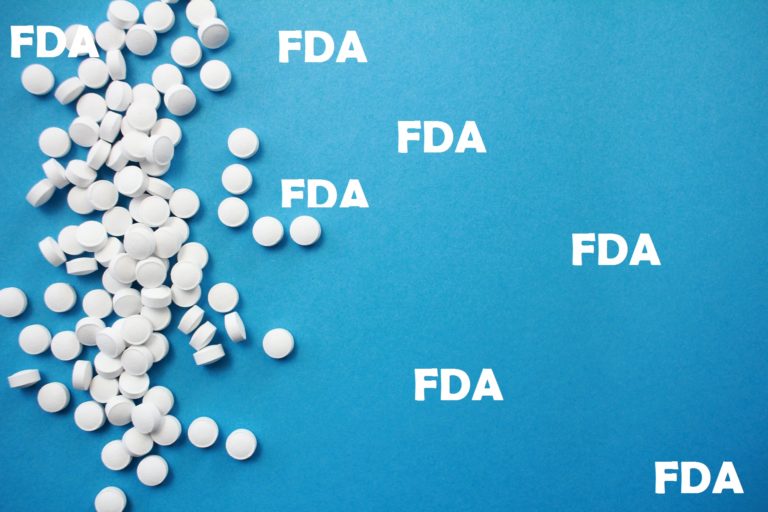June 18, 2020: “Ultragenyx Pharmaceutical announced that the U.S. FDA has approved Crysvita® (burosumab) for the treatment of fibroblast growth factor 23 (FGF23)-related hypophosphatemia in tumor-induced osteomalacia (TIO) associated with phosphaturic mesenchymal tumors that cannot be curatively resected or localized in adults and pediatric patients 2 years of age and older.
Crysvita is a human antibody that blocks excess activity of FGF23, a hormone that causes phosphate urinary excretion and suppresses active vitamin D production by the kidney.
“For approximately half of all individuals with TIO, surgical removal of the tumors is not possible, leaving these patients with no other treatment options.
The FDA approval of Crysvita marks the first treatment option that addresses the cause of the severe hypophosphatemia and osteomalacia resulting from these rare tumors,” said Camille L. Bedrosian, M.D., Chief Medical Officer of Ultragenyx.
“We plan to leverage our experience and existing infrastructure with Crysvita in X-linked hypophosphatemia to bring this important medicine to patients living with the rare, painful and debilitating disorder of TIO.”
“Since its approval, Crysvita has meant a great deal to patients and families that previously had no other treatment options.
We are proud of the work that has been done to advance this discovery from our labs, through a robust clinical research program, and through the FDA’s priority review process, to make this treatment available to patients with TIO,” said Gary Zieziula, President, North America for Kyowa Kirin.
“Our commitment to meeting the needs of patients with rare and serious diseases remains steadfast and we will continue to partner with the Ultragenyx team to address these needs with urgency.”
TIO is a rare disease caused by typically benign, slow-growing tumors that produce excess levels of FGF23, which is involved in phosphate reabsorption. Patients with TIO can experience symptoms including severe hypophosphatemia (low levels of phosphate in the blood), osteomalacia (softening of the bones), muscle weakness, fatigue, bone pain and fractures
There are an estimated 500 to 1,000 people in the United States with TIO, and approximately half of all cases are believed to be inoperable.
In patients for whom the tumor or lesion is inoperable, the current treatment consists of oral phosphate and/or active vitamin D replacement.
Efficacy of this management is often limited, and its benefits must be balanced with monitoring for potential risks.
This is the second FDA-approved indication for Crysvita, which was first approved in April 2018 for the treatment of X-linked hypophosphatemia (XLH) in adult and pediatric patients one year of age and older.
The XLH indication was expanded in September 2019 to include infants as young as six months of age.
The FDA approval of Crysvita for TIO was based on data from two single-arm Phase 2 studies, a 144-week study in 14 adult patients conducted by Ultragenyx in the United States and an 88-week study in 13 adult patients conducted by Kyowa Kirin in Japan and South Korea. In both studies, Crysvita was associated with increases in serum phosphorus and serum 1,25-dihydroxyvitamin D levels.
Related News: Ultragenyx and Kyowa Kirin Announce Submission of Supplemental Biologics License Application to U.S. FDA for Crysvita® (burosumab) for the treatment of Tumor-Induced Osteomalacia (TIO)
FDA Approves First Therapy for Rare Disease
Increased phosphate levels led to improvements in osteomalacia. Additionally, whole body bone scans demonstrated reduced tracer uptake with long-term treatment suggesting healing of bone lesions. Most common adverse reactions (>10%) in TIO patients are: tooth abscess, muscle spasms, dizziness, constipation, injection site reaction, rash, and headache.
The FDA granted Priority Review designation for the supplemental BLA for TIO, which is reserved for drugs that treat a serious condition and, if approved, would provide a significant improvement in safety or effectiveness.
To support access, Ultragenyx has a program called UltraCare™, which helps patients and caregivers understand insurance coverage and assists them in finding financial support for Ultragenyx medicines including Crysvita, and for the administration of them.
Dedicated in-house UltraCare Guides are available Monday through Friday from 9 a.m. to 8 p.m. Eastern Time at 888-756-8657.
Crysvita
Crysvita (burosumab-twza) is a recombinant fully human monoclonal IgG1 antibody, discovered by Kyowa Kirin, against the phosphaturic hormone FGF23. FGF23 is a hormone that reduces serum levels of phosphorus and active vitamin D by regulating phosphate excretion and active vitamin D production by the kidney.
Phosphate wasting in TIO and other hypophosphatemic conditions, including XLH, is caused by excessive levels and activity of FGF23.
Crysvita is designed to bind to and thereby inhibit the biological activity of FGF23. By blocking excess FGF23 in patients with TIO and XLH, Crysvita is intended to increase phosphate reabsorption from the kidney and increase the production of active vitamin D, which enhances intestinal absorption of phosphate and calcium.
Crysvita is approved by the U.S. FDA for the treatment of X-linked hypophosphatemia (XLH) in adult and pediatric patients six months of age and older and FGF23-related hypophosphatemia in tumor-induced osteomalacia (TIO) associated with phosphaturic mesenchymal tumors that cannot be curatively resected or localized in adults and pediatric patients 2 years of age and older, and by Health Canada and Brazil’s National Health Surveillance Agency (ANVISA) for the treatment of XLH in adult and pediatric patients one year of age and older.
In Japan, it is approved by the Ministry of Health, Labor and Welfare (MHLW) for the treatment of FGF23-related hypophosphatemic rickets and osteomalacia.
In Europe, Crysvita has received European conditional marketing authorization for the treatment of XLH with radiographic evidence of bone disease in children 1 year of age and older and adolescents with growing skeletons, and an application for the expanded use in adults with XLH is currently under review by the European Medicines Agency.
Kyowa Kirin and Ultragenyx have been collaborating in the development and commercialization of Crysvita globally based on the collaboration and license agreement between the parties.
U.S. INDICATION
Crysvita® (burosumab-twza) is a fibroblast growth factor 23 (FGF23)-blocking antibody indicated for the treatment of:
- X-linked hypophosphatemia (XLH) in adult and pediatric patients 6 months of age and older.
- FGF23-related hypophosphatemia in tumor-induced osteomalacia (TIO) associated with phosphaturic mesenchymal tumors that cannot be curatively resected or localized in adult and pediatric patients 2 years of age and older.
IMPORTANT SAFETY INFORMATION
CONTRAINDICATIONS
- With oral phosphate and/or active vitamin D analogs (e.g., calcitriol, paricalcitol, doxercalciferol, calcifediol).
- When serum phosphorus is within or above the normal range for age.
- In patients with severe renal impairment or end stage renal disease.
WARNINGS AND PRECAUTIONS
Hypersensitivity
- Discontinue Crysvita if serious hypersensitivity reactions occur and initiate appropriate medical treatment.
Hyperphosphatemia and Risk of Nephrocalcinosis
- For patients already taking Crysvita, dose interruption and/or dose reduction may be required based on a patient’s serum phosphorus levels.
- Patients with TIO who undergo treatment of the underlying tumor should have dosing interrupted and adjusted to prevent hyperphosphatemia.
Injection Site Reactions
- Discontinue Crysvita if severe injection site reactions occur and administer appropriate medical treatment.
ADVERSE REACTIONS
Pediatric XLH Patients
- Adverse reactions reported in 10% or more of Crysvita-treated pediatric XLH patients across all studies are: pyrexia, injection site reaction, cough, vomiting, pain in extremity, headache, tooth abscess, dental caries, diarrhea, vitamin D decreased, toothache, constipation, myalgia, rash, dizziness, and nausea.
- Post-marketing experience reported in pediatric XLH patients receiving Crysvita – blood phosphorus increased.
Adult XLH Patients
- Adverse reactions reported in more than 5% of Crysvita-treated adult XLH patients and in at least 2 patients more than placebo in one study are: back pain, headache, tooth infection, restless legs syndrome, vitamin D decreased, dizziness, constipation, muscle spasms, and blood phosphorus increased.
- Spinal stenosis is prevalent in adults with XLH, and spinal cord compression has been reported. It is unknown if Crysvita therapy exacerbates spinal stenosis or spinal cord compression.
Adult TIO Patients
- Adverse reactions reported in more than 10% of Crysvita-treated adult TIO patients in two studies are: tooth abscess, muscle spasms, dizziness, constipation, injection site reaction, rash, and headache.
USE IN SPECIFIC POPULATIONS
- There are no available data on Crysvita use in pregnant women to inform a drug-associated risk of adverse developmental outcomes. Serum phosphorus levels should be monitored throughout pregnancy. Report pregnancies to the Kyowa Kirin, Inc. Adverse Event reporting line at
1-888-756-8657. - There is no information regarding the presence of Crysvita in human milk or the effects of Crysvita on milk production or the breastfed infant.
PATIENT COUNSELING INFORMATION








